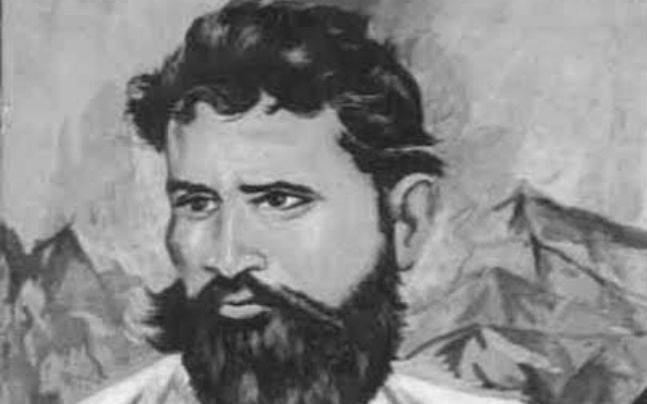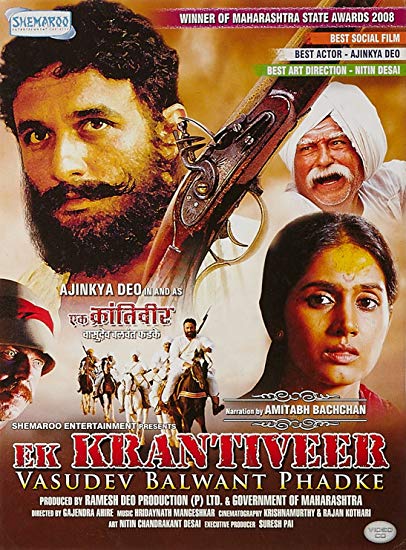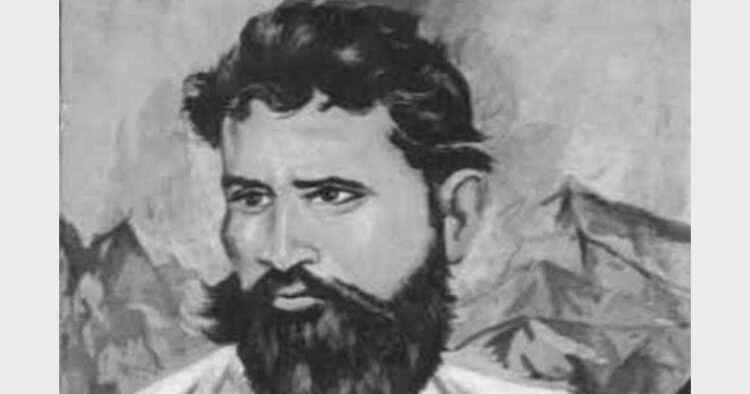
Vasudev Balwant Phadke
Vasudev Balwant Phadke, one of India’s first revolutionaries in the independence movement, passed away on February 17, 1883. His rebellion arguably had indirectly affected the plot of Bankim Chandra Chattopadhyay’s novel Anandamath (1882). Phadke was born on November 4, 1845 in the Shirdhon village of Panvel Taluka, based in Raigad district in Maharashtra.
Phadke became known as the father of the Indian armed rebellion in that he provided the inspiration for fellow freedom fighters. Bankim Chandra Chattopadhyay’s patriotic novel Anand Math incorporated various contemporary acts of patriotism performed by Phadke during his freedom struggle. As the British Government did not like this, Bankim had to print up to five editions of the book to tone down these stories.
Here are some interesting facts about the father of Indian armed struggle, who breathed his last, aged 38. As a child, he preferred learning skills like wrestling. Eventually, he moved to Pune and took a job as a clerk with the military accounts department in Pune for 15 years.
During the British Raj, Phadke was moved by the plight of the farmer community. He believed that Swaraj was the only remedy for their ills. He was the first Indian to tour for political propaganda.

Poster of the 2007 film- Ek Krantiveer-Vasudev Balwant Phadke
In 1875, he formed a revolutionary group, called Ramoshi with the help of Kolis, Bhils and Dhangars communities in Maharashtra to overthrow the British. On the night of February 20, 1879 Phadke along with his colleagues Vishnu Gadre, Gopal Sathe, Ganesh Deodhar and Gopal Hari Karve declared their 200-strong militia outside Loni, which was eight miles north of Pune. It was probably the first revolutionary army of India.
To collect funds for their armed struggle and provide for famine-stricken farmers, Phadke and his men launched raids on rich English businessmen. Phadke issued his famous proclamation denouncing the exploitative economic policies of the government and warned them in May, 1879. Copies of the proclamation were posted to the Governor, the collectors and other government officers, creating a sensation throughout the country.
Phadke became famous when he took complete control of the city of Pune for a few days, by catching the British soldiers off guard during one of his surprise attacks. Three social reformers and revolutionaries, Phadke, Laxman Narhar Indapurkar and Waman Prabhakar Bhave in 1860, formed the Poona Native Institution, which later came to be known as Maharashtra Education Society.
Later, when the Britisher’s tightened their grip he was forced to flee Maharashtra. He went to the temple of Shree Shaila Mallikarjuna, a Jyotirlinga in Kurnool district of Andhra Pradesh. Phadke was captured in 1879 and transported to a jail in Aden, Yemen, because the British feared the Indian public’s reaction to his arrest. In February 1883, he escaped jail by pulling the prison door off its hinges, but was arrested again immediately. He went on a hunger strike to death and passed away on February 17. He was 38.














Comments